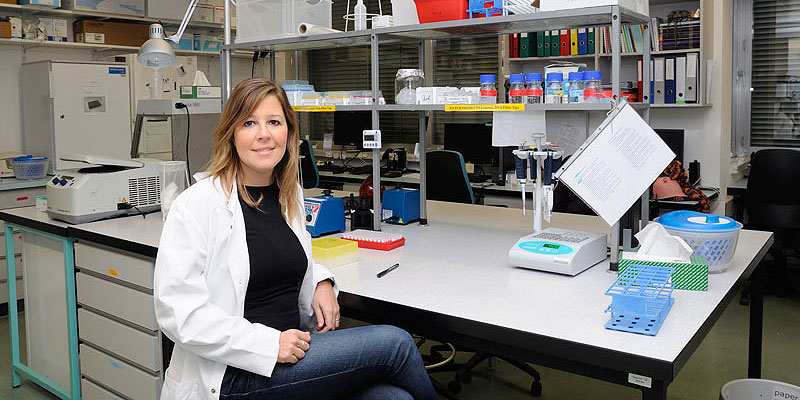Swiss TB Award for Mireia Coscollá Devís
The Swiss Foundation for Tuberculosis Research confers the Swiss TB Award 2016 to Swiss TPH researcher Mireia Coscolla for her new insights on the antigenic variation of tuberculosis bacteria. The value of the prize is 10,000 Swiss Francs.
17 March 2016
There is a continuous “arm’s race” between immune systems and pathogens. The immune system develops antibodies against invading germs such as bacteria, viruses or parasites. These, in turn, answer with antigenic variation, i.e. they change their traits to undergo immune response. Most of the pathogens profit from this basic mechanism in infection biology.
However, the Mycobacterium tuberculosis, the pathogen causing tuberculosis in humans, diverges from this pattern. In collaboration with the New York University, Mireia Coscolla and her team led by Sébastien Gagneux could show that the antigens of the TB bacteria recognised by the immune system exhibit similar traits between different strains and are hyperconserved. This possibly created an evolutionary advantage for the TB-bacteria. For, during a TB-infection, these highly conserved antigens provoke a severe immune response that enables the bacteria to enter the lungs from where they are easily transmitted from humans to humans by coughing. “The almost lack of antigenic variation is the result of the long co-evolution between bacteria and humans” says Coscolla. “A deeper understanding of these evolutionary processes is crucial to develop a new vaccine against the deadly disease.”
Possible new Targets for a New TB-Vaccine
The article awarded by the Foundation could be a first step in this direction, because, additionally, the researchers identified seven TB-antigens that are not conserved but highly variable and that trigger an immune response in TB-patients. These exceptions could be possible targets for the development of a new TB-vaccine. Traditional vaccine candidates offered only limited protection against the disease because they were based upon the highly conserved antigens favouring the bacteria. The newly found variable antigens could therefore serve as promising new targets for an effective TB-vaccine.
Original source
Mireia Coscolla, Richard Copin, Jayne Sutherland, Florian Gehre, Bouke de Jong, Olumuiya Owolabi, Georgetta Mbayo, Federica Giardina, Joel D. Ernst, Sebastien Gagneux
M. tuberculosis T Cell Epitope Analysis Reveals Paucity of Antigenic Variation and Identifies Rare Variable TB Antigens
Cell Host & Microbe (2015), doi: 10.1016/j.chom.2015.10.008



